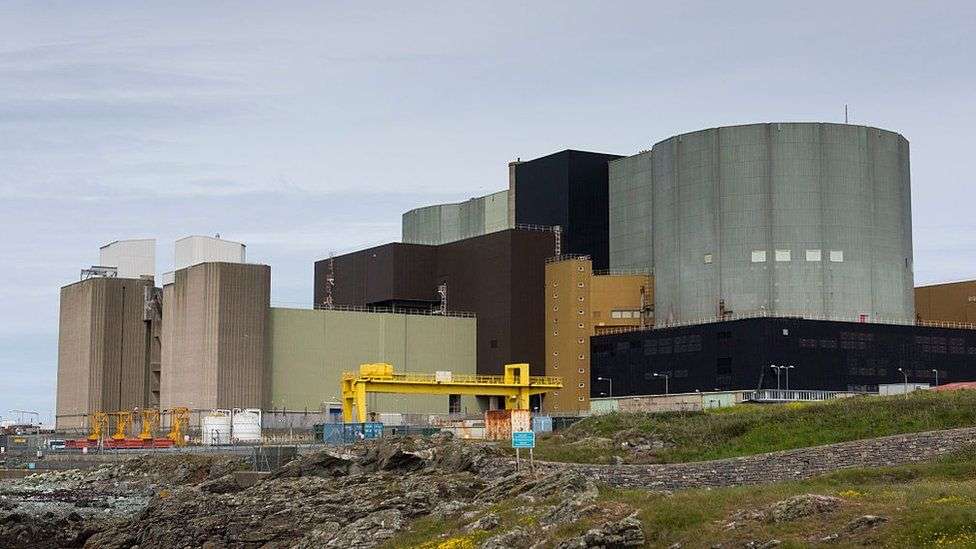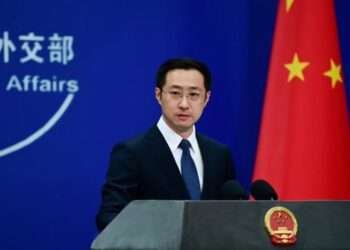The UK government has announced its efforts to secure sites for potential new nuclear power stations, notably engaging in talks with the owner of the Wylfa facility in north Wales.
The Wylfa site, situated on the island of Anglesey or Ynys Môn, is presently owned by Hitachi.
However, uncertainties have loomed over its future since 2020 when Hitachi formally withdrew from its plans to construct a new reactor due to the failure to reach an agreement on financial support with the government.
Presently, the government is in preliminary talks with Hitachi regarding the acquisition of the land, to collaborate with a partner to develop a nuclear power station there.
Despite encountering significant delays and substantial cost overruns on ongoing projects at Hinkley Point C in Somerset and Sizewell in Suffolk, the government has remained committed to expanding nuclear power generation, evident in initiatives such as Great British Nuclear launched in recent years.
In January this year, the government unveiled ambitious plans for what it called Britain’s most extensive nuclear power expansion in 70 years, aiming to construct reactors capable of generating 24 gigawatts of power by 2050.
This effort is projected to satisfy a quarter of the UK’s energy demand while maintaining zero carbon emissions.
However, the realization of these plans hinges on advancing nuclear projects, necessitating suitable sites for new reactors, which are relatively scarce.

According to reports, the Wylfa site has been appraised at £200 million, marking the backdrop for discussions between Hitachi and GB Nuclear.
Currently, Wylfa has the UK’s last Magnox nuclear reactors that ceased operation in 2015 and is considered a viable location for either a large reactor or a small modular reactor (SMR).
The government is optimistic that SMRs will streamline and reduce the cost of constructing nuclear power stations.
UK’s Nuclear Energy Goal
On Monday, February 12, 2024, companies and institutions within the British nuclear industry announced the initiation of a recruitment campaign to ensure an adequate workforce to support the government’s ambitious goals.
The initiative, named Destination Nuclear, underscores the necessity to double the current workforce over the next two decades to facilitate a potential quadrupling of output.
According to the Nuclear Industry Association, a lobby group, there are approximately 64,500 employees throughout the UK’s civil nuclear supply chain, with additional personnel in defence-related sectors.
Support for the initiative comes from various stakeholders, including the French state-owned energy company EDF, engineering firms such as Atkins, Jacobs, and Laing O’Rourke, as well as companies engaged in the UK’s nuclear weapons and submarines programs, including Babcock, Rolls-Royce, and BAE Systems.
A representative from the Department for Energy Security and Net Zero emphasized the government’s commitment to a consistent and decisive approach towards nuclear energy.
They highlighted the recent launch of a roadmap for the sector, marking the largest expansion in 70 years.
This initiative aims to streamline regulations and accelerate the process of constructing new power stations, promising cleaner, more affordable, and secure energy in the long run.
Regarding the Wylfa site and other potential locations for civil nuclear projects, the spokesperson clarified that while no decisions have been made yet, collaborative efforts with Great British Nuclear are underway to facilitate access to potential sites for future nuclear endeavors.
In response, a spokesperson from Hitachi affirmed their ownership of two prime locations for the nuclear projects in the UK. The spokesperson stated, “We own two of the premier locations for nuclear new-build in the UK.”
The United Kingdom currently generates approximately 15% of its electricity from an existing nuclear capacity of around 6.5 gigawatts (GW). However, most of this capacity is expected to be retired by the end of the decade.
READ ALSO: UK’s Rwanda Asylum-Seeker Plan Breaches Rights, Parliamentary Watchdog Warns























